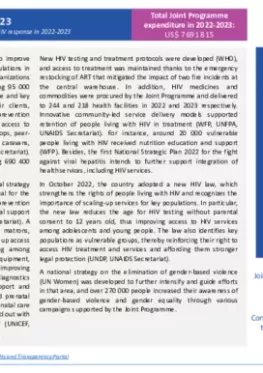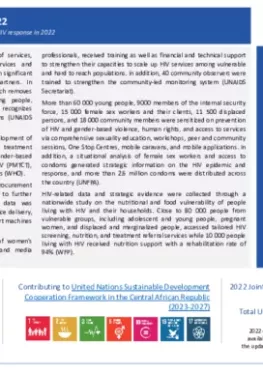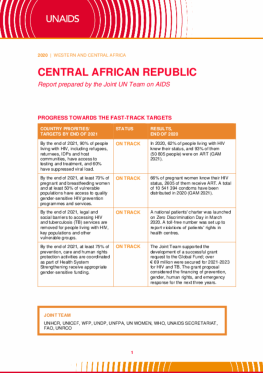|
Central African Republic
In 2022-2023, the Central African Republic continued to improve access to HIV information and services among key populations in partnership with the Joint Programme, civil society organizations and communities. More than 250 000 people, including 95 000 adolescents, 9000 members of the internal security force and key populations, including female sex workers and their clients, prisoners and indigenous minorities were sensitized on prevention of HIV and gender-based violence, human rights, and access to services via comprehensive sexuality education, workshops, peer- and community-led sessions, one-stop centres, mobile caravans, and mobile applications (UNICEF, UNFPA, UNAIDS Secretariat). Also, over 4.2 million condoms were distributed among 690 400 people at risk of HIV infection (UNFPA).
The national HIV strategic plan (2023-2027), the national strategy for preventing vertical transmission of HIV and a manual for the comprehensive management of paediatric HIV and the prevention of vertical transmission were developed through technical support from the Joint Programme (WHO, UNICEF, UNAIDS Secretariat). A total of 164 healthcare workers including traditional matrons, midwives and birth attendants received training to scale up access and quality of these services, including HIV testing among malnourished children (UNICEF, WFP). Laboratory equipment, including GenXpert machines were also procured improving prevention of vertical transmission and paediatric diagnostics (UNICEF). As a result of the Joint Programme’s support and capacity building, over 5000 pregnant women received prenatal consultations, 569 pregnant women benefited from antenatal care provided by trained matrons, 1000 deliveries were carried out with medical staff, and 300 infants were tested for HIV (UNICEF, UNFPA).




